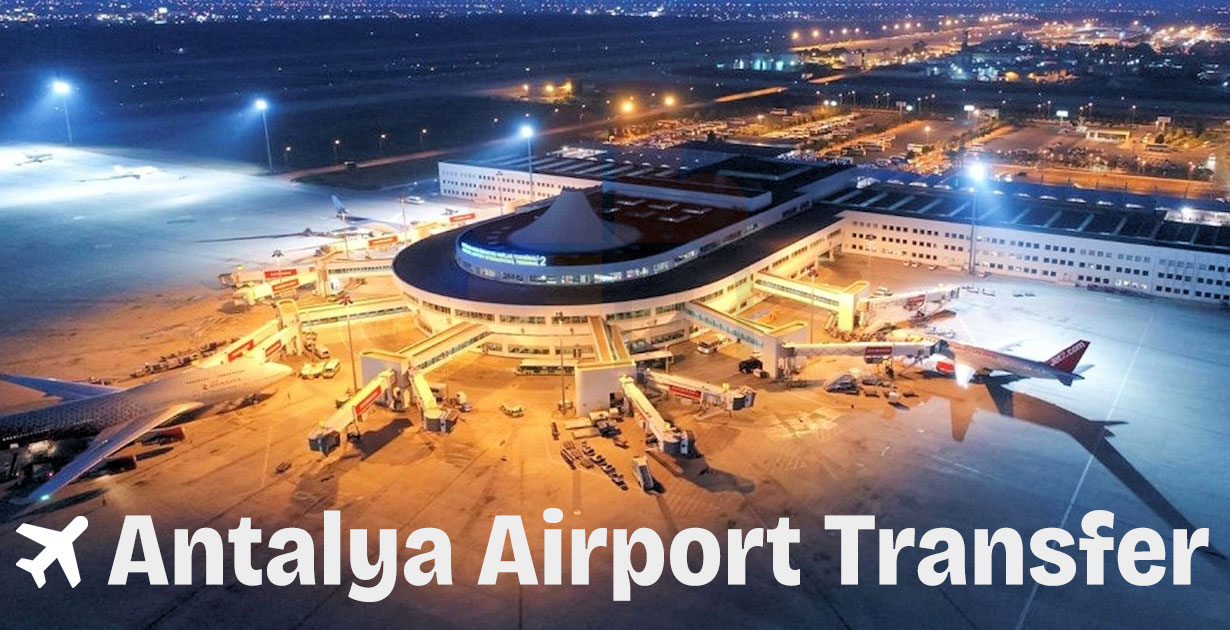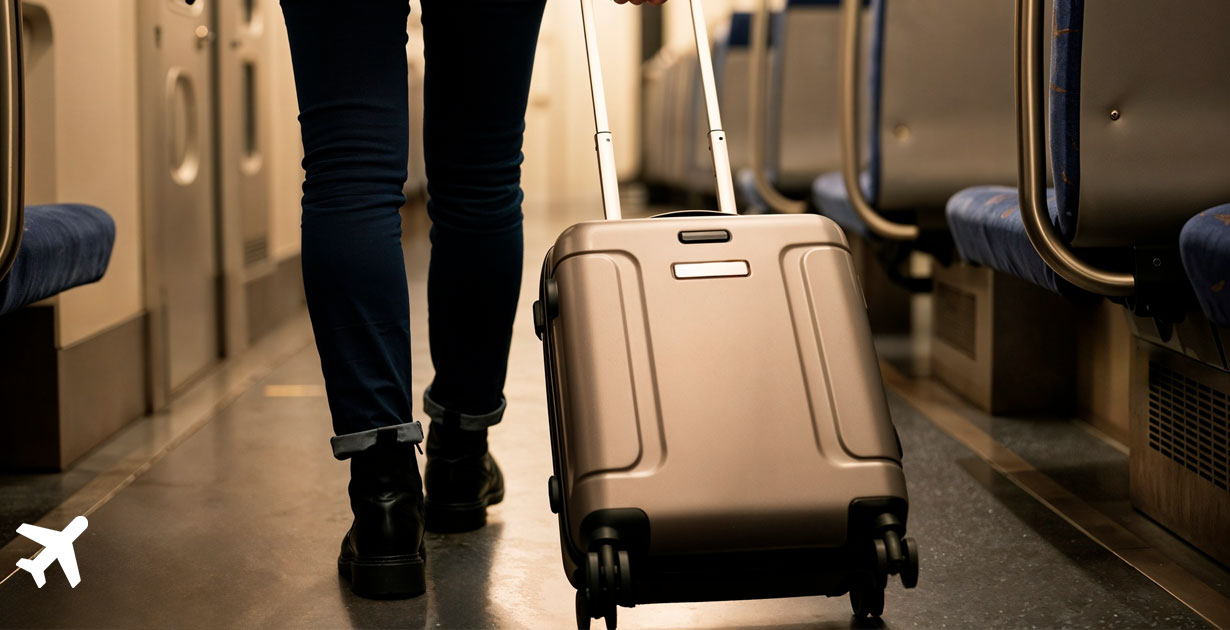
This comprehensive professional guide examines Antalya Airport transfer services, providing critical insights for business travelers, tourists, and travel industry professionals. Antalya Airport (AYT), Turkey's third-busiest airport, serves as the primary gateway to the country's stunning Mediterranean coastline, handling millions of passengers annually. The transfer service landscape offers diverse options ranging from economical shared shuttles to premium VIP services, with prices starting from 425 TRY (approximately $15) for economical transfers to specific destinations. Key considerations when selecting services include group size, budget constraints, time efficiency, and comfort requirements. This analysis synthesizes data from leading transfer providers to deliver an authoritative resource for optimizing ground transportation decisions when traveling through Antalya in 2025.
Introduction to Antalya Airport and Transfer Essentials

Antalya Airport stands as one of the Mediterranean's most significant aviation hubs, ranking as Turkey's third-busiest airport and serving as the primary gateway to the country's stunning southern coastline. Each year, this modern facility welcomes millions of visitors from across the globe, making efficient transportation to and from the airport a critical component of the regional tourism infrastructure. The airport's strategic importance to Turkish tourism cannot be overstated it serves not just Antalya city itself but also the extensive resort regions stretching from Kemer to Alanya, encompassing world-class destinations like Belek, Side, and Manavgat along its spectacular coastline.
Understanding the transfer landscape at Antalya Airport requires familiarity with its physical structure. The airport comprises two main terminals: Terminal 1 handles domestic flights and more than half of international arrivals, while Terminal 2 primarily services international carriers, especially during the peak summer season. Recent renovations completed in 2025 have significantly enhanced the Terminal 2 international facilities, transforming it into what many industry observers describe as a "luxury shopping mall" experience, complete with high-end retail outlets, diverse dining options, and premium passenger amenities. Both terminals offer comprehensive services including currency exchange, ATMs from multiple banks, prayer rooms, children's play areas, and medical facilities
The transfer decision matrix for arriving passengers involves several critical considerations: group size, budget constraints, desired comfort level, and final destination. With transfer distances varying significantly from just 33 km to Belek (approximately 33 minutes) to 125 km to Alanya ( nearly 2 hours) selecting the appropriate transfer option becomes crucial for optimizing both time and financial resources. This guide provides detailed analysis of all available transfer modalities, from budget-friendly shared shuttles to premium private services, empowering travelers to make informed decisions that align with their specific needs and preferences.
Comprehensive Analysis of Transfer Options

Shared Transfer Services
Economical shared transfers represent the most budget-friendly option for solo travelers and small groups with flexible schedules. These services utilize 14-person minibuses that consolidate passengers heading to similar destinations, significantly reducing per-person costs compared to private alternatives. The operational model involves brief waiting periods at the airport (up to 50 minutes maximum) to allow for multiple passenger pickups, followed by a circuitous route that may involve several stops before reaching each passenger's final destination. While this option offers substantial cost savings with prices starting as low as 425 TRY to Side or Manavgat it trades time efficiency for economy, making it less suitable for those with immediate scheduling constraints or those who value privacy.
The shared experience methodology has evolved significantly in recent years, with providers implementing sophisticated routing algorithms that minimize detours and waiting times. Modern operators now utilize advanced software to group passengers by destination proximity, resulting in more efficient routes than the seemingly random stop patterns of historical shared transfer services. Despite these improvements, travelers should still anticipate a journey time approximately 25-40% longer than direct private transfers, depending on the number of stops required. This option particularly appeals to budget-conscious tourists, solo travelers, and those without tight scheduling constraints who prioritize economy over time efficiency.
Private Transfer Solutions
Private transfer services offer a significantly enhanced experience characterized by personalized service, immediate departure, and direct routing to your final destination. Unlike shared alternatives, private vehicles are reserved exclusively for you and your party, ensuring complete privacy and flexibility 3. The vehicle fleet typically ranges from sedan cars (accommodating up to 3 passengers with 3 pieces of luggage) to minivans (typically Mercedes Vito or Volkswagen Caravelle models capable of transporting 7 passengers with 7 luggage pieces). Premium providers enhance the experience with amenities including Wi-Fi, chilled beverages, air conditioning, and English-speaking drivers who often provide valuable local insights during the journey.
The value proposition of private transfers extends beyond mere transportation, incorporating elements of comfort, convenience, and reliability that justify the premium pricing. Business travelers, families with young children, and those with significant luggage typically find exceptional value in this service category. The elimination of waiting times drivers monitor flight arrivals and adjust pickup times accordingly ensures seamless connectivity even when flights experience delays. Furthermore, the door-to-door service model eliminates the logistical challenges of navigating unfamiliar roads and languages, particularly valuable after long international flights or when traveling during antisocial hours.
VIP and Luxury Transfer Experiences
VIP transfer services represent the premium segment of Antalya's ground transportation market, delivering an elevated experience characterized by luxury vehicles, premium amenities, and personalized service touches. This category typically features high-end vehicles such as late-model Mercedes-Benz, BMW, or Audi models, often with enhanced soundproofing, leather interiors, and additional legroom for maximum comfort during the transfer. The service protocol typically includes meet-and-greet assistance at the airport where the driver awaits at the arrival gate with a personalized sign baggage handling, and complimentary refreshments during the journey.
The luxury differentiation extends beyond mere transportation to encompass experiential elements that transform the transfer from a functional necessity to a pleasure activity. Premium providers typically offer additional amenities such as WiFi connectivity, mobile charging ports, international newspapers, and premium bottled beverages. Some operators specializing in the VIP market provide optional add-ons such as bilingual tour guides, personalized welcome packages, and even custom sightseeing detours en route to your destination. While commanding a significant price premium over standard private transfers often 2-3 times the cost these services deliver exceptional value for luxury travelers, special occasion celebrations, and corporate clients seeking to impress business associates.
| Service Type | Best For | Pros | Cons |
|---|---|---|---|
| Shared Transfer | Solo travelers, budget-conscious groups | Lowest cost, eco-friendly option | Multiple stops, longer travel time |
| Private Transfer | Families, business travelers, those with luggage | Direct routing, privacy, time efficiency | Higher cost than shared options |
| VIP/Luxury Transfer | Luxury travelers, special occasions, corporate clients | Premium amenities, personalized service | Significant price premium |
Detailed Pricing Analysis and Destination-Specific Costs

Regional Pricing Structure
The cost architecture for Antalya Airport transfers follows a logical geographical pattern based primarily on transfer distance and time, with additional variables including vehicle type, service level, and operator pricing strategy. The most comprehensive pricing data available indicates that economical shared transfers begin at 425 TRY for destinations like Side and Manavgat (approximately 65 km distance), while prices escalate to 650 TRY for the longer transfer to Alanya (125 km) 2. Private transfer solutions command significantly higher rates, ranging from 1,349 TRY to Belek up to 1,959 TRY to Alanya for standard private vehicles, with VIP options commanding additional premiums.
A comparative analysis of destination-specific pricing reveals interesting market dynamics. The following table synthesizes current pricing data from multiple providers for popular destinations, providing a comprehensive reference for budget planning:
| Destination | Distance | Travel Time | Shared Transfer | Private Transfer | VIP Service |
|---|---|---|---|---|---|
| Lara | ~15 km | ~25 min | 500 TRY | 859 TRY | 1,200+ TRY |
| Kundu | ~10 km | ~20 min | 450 TRY | 800 TRY | 1,100+ TRY |
| Belek | 33 km | 33 min | 500 TRY | 1,349 TRY | 1,800+ TRY |
| Kemer | 58 km | 63 min | 700 TRY | 1,799 TRY | 2,400+ TRY |
| Side | 65 km | 59 min | 425 TRY | 1,399 TRY | 1,900+ TRY |
| Manavgat | 65 km | 61 min | 425 TRY | 1,399 TRY | 1,900+ TRY |
| Alanya | 125 km | 116 min | 650 TRY | 1,959 TRY | 2,600+ TRY |
Vehicle Category Pricing Analysis
The pricing stratification across vehicle categories reflects both capacity constraints and service level differentiation. Economical shared transfers typically utilize 14-person minibuses, with per-person pricing that decreases marginally for groups. Private vehicle pricing follows a logical progression based primarily on passenger and luggage capacity:
- Sedan Vehicles (3 passengers + 3 luggage): Base pricing for most destinations
- Minivan/MPV (7 passengers + 7 luggage): Typically 25-40% premium over sedan pricing
- Minibus (14 passengers): Approximately 2 - 2.5 times sedan pricing
- Midibus (21 passengers): Approximately 3 - 3.5 times sedan pricing
- Bus (40+ passengers): Approximately 4 - 5 times sedan pricing
The value optimization strategy for groups merits special consideration. While solo travelers naturally find shared transfers most economical, groups of 3-4 people may discover that private sedan transfers offer minimal price premium over four separate shared transfer tickets while delivering significantly enhanced convenience and time savings. Similarly, groups of 6-7 people often find that private minivan services represent exceptional value compared to multiple smaller vehicles or shared options, particularly when considering the door-to-door service and time efficiency.
Booking Process and Operational Considerations

Reservation Protocols and Channels
The reservation ecosystem for Antalya Airport transfers has evolved into a sophisticated multi-channel environment offering various booking modalities to suit different traveler preferences. Modern transfer providers typically offer three primary booking channels: online platforms through company websites or aggregator marketplaces, live chat support available on most operator websites, and traditional telephone reservations via 24/7 call centers. Leading providers have implemented streamlined booking engines that require minimal data input typically collection/destination addresses, passenger count, luggage quantity, and flight details while generating instant quotations based on sophisticated pricing algorithms.
The payment infrastructure demonstrates notable flexibility across the industry, with most providers accepting multiple payment methods including major credit cards (without surcharge according to several providers), bank transfers, and increasingly, cash payments to the driver upon service completion. A notable trend among premium providers is the "pay later" option that allows travelers to secure reservations without immediate payment, particularly valuable when travel plans remain tentative. The reservation confirmation process typically generates a comprehensive voucher detailing all service aspects including meeting point instructions, emergency contact information, and vehicle details, enabling travelers to proceed with confidence.
Cancellation Policies and Flexibility
The cancellation framework across the Antalya transfer industry demonstrates remarkable consumer-friendly orientation, particularly when compared to other travel service categories. Industry standards typically permit cancellations without penalty up to 24 hours before the scheduled service time, with some premium providers extending this window to 12 hours pre-service. This flexibility provides valuable protection against travel plan uncertainties, flight schedule changes, and unforeseen circumstances that might otherwise result in financial penalties.
The industry evolution toward more flexible terms reflects intense competition and a customer-centric approach to service design. Many providers now offer additional protective features including flight monitoring systems that automatically adjust pickup times based on actual flight arrival data. This sophisticated integration with flight tracking databases eliminates the traditional stress associated with flight delays and transfer connections, ensuring drivers arrive precisely when needed regardless of schedule variations. The operational sophistication behind these systems represents significant investment in technology infrastructure, yet the competitive marketplace has made them standard expectations rather than premium differentiators.
Service Features and Operational Excellence

Meeting Procedures and Airport Protocols
The airport rendezvous process represents a critical touchpoint in the transfer experience, with standardized protocols across most quality providers. Upon clearing customs and retrieving luggage, passengers typically proceed to the terminal exit where drivers await holding signage displaying the passenger's name. Prominent providers utilize designated meeting points typically at the "B2" board in the arrival hall where representatives provide coordinated meeting services. This standardized approach minimizes confusion in the often-chaotic airport arrival environment, ensuring smooth connections even for first-time visitors.
The contingency management protocols deserve particular recognition for their robustness. Reputable providers implement multi-layered communication systems including 24/7 customer support lines, WhatsApp messaging capabilities, and airport desk assistance to handle any meeting complications. The industry standard now includes proactive flight tracking that monitors arrival times in real-time, automatically adjusting driver dispatch to accommodate delays without requiring passenger intervention. This sophisticated operational approach essentially creates a "failsafe" connection system that virtually eliminates the traditional stress associated with airport transfers, particularly valuable after long international flights or when traveling with weary children.
Waiting Time Policies and Response Protocols
The temporal understanding between providers and clients represents a carefully balanced contractual element in the transfer service agreement. Industry standards typically incorporate a 60-minute complimentary waiting period following actual flight landing time, providing adequate time for passengers to clear immigration, collect luggage, and complete customs formalities. This grace period reflects realistic assessment of airport processing times, though exceptions may occur during peak periods or when unusual circumstances create extended delays.
The protocol escalation for extended delays follows structured patterns across quality providers. Beyond the initial complimentary period, most companies implement reasonable extended waiting fees typically communicated transparently in advance that compensate drivers for additional time while avoiding excessive passenger penalties. The communication infrastructure supporting delay management has become increasingly sophisticated, with many providers utilizing automated SMS updates and WhatsApp messaging to maintain real-time communication with arriving passengers. This proactive communication approach significantly reduces anxiety and confusion when flight delays or extended airport processing times impact the original transfer schedule.
Special Services and Amenities
The amenity portfolio available across Antalya's transfer service spectrum has expanded significantly, transforming from basic transportation to comprehensive travel experiences. Standard expectations now include complimentary meet-and-greet services, air conditioning in all vehicles, and basic luggage assistance without additional fees. Premium providers enhance this baseline with value-added amenities including Wi-Fi connectivity, charging ports for electronic devices, child safety seats (often without additional fee when requested in advance), and complimentary bottled water
The VIP service differentiation extends beyond physical amenities to encompass experiential enhancements that begin the vacation experience immediately upon arrival. Luxury providers typically offer bilingual drivers capable of providing basic destination orientation, personalized welcome packages containing useful tourist information, and flexibility for brief intermediate stops when requested. The highest service tier includes luxury vehicles with enhanced comfort features, premium refreshments, and dedicated concierge support that can handle additional service requests during the transfer. This amenity progression across service levels enables travelers to select precisely the experience level matching their preferences and budget.
Antalya Airport Overview and Passenger Navigation

Terminal Infrastructure and Facilities
Antalya Airport's physical plant comprises two major terminal complexes that underwent significant renovation completed in 2025, transforming them into modern, passenger-friendly facilities. Terminal 1 primarily handles domestic flights alongside select international arrivals, while Terminal 2 focuses predominantly on international carriers, particularly during the peak summer season. The renovated Terminal 2 has been particularly noted for its "luxury AVM" (shopping mall) atmosphere, featuring an extensive array of retail options ranging from international luxury brands to local specialty stores.
The passenger amenity spectrum available within both terminals meets international standards, featuring comprehensive services designed to enhance the travel experience. Financial services include multiple ATM units from various Turkish banks and currency exchange facilities. Dining options range from quick-service international franchises to sit-down restaurants offering local cuisine. Other notable amenities include prayer rooms, children's play areas, and medical clinics staffed with emergency response capabilities. The infrastructure improvements completed in 2025 have positioned Antalya Airport among the Mediterranean's most modern aviation facilities, providing a welcoming initial impression for arriving visitors.
Passenger Flow and Navigation Strategies
The terminal navigation process for arriving international passengers follows standard international patterns with slight variations specific to Antalya's configuration. After disembarkation, passengers proceed through immigration control, then to baggage reclaim, and finally through customs screening before entering the public arrival hall where transfer drivers await. The renovated Terminal 2 features improved signage in multiple languages (including English, German, and Russian), reflecting Antalya's diverse international visitor demographic.
The wayfinding methodology for connecting with transfer services has been standardized across providers, creating a consistent passenger experience despite the competitive marketplace. Most reputable companies designate specific meeting points typically at the "B2" board in the arrival hall where drivers hold personalized signs displaying the passenger's name. This standardized approach minimizes confusion despite the potentially chaotic arrival environment. Additionally, many providers maintain permanent desks within the airport where passengers can seek assistance if they encounter difficulty locating their driver. The multi-layered approach combining standardized meeting points, personalized signage, and supplementary assistance desks creates a robust system that successfully connects virtually all passengers with their pre-arranged transfers without significant complications.
Maximizing Your Transfer Experience: Professional Recommendations

Strategic Timing Considerations
The temporal optimization of transfer arrangements requires careful consideration of multiple variables including flight schedules, seasonal patterns, and destination-specific factors. Industry professionals universally recommend scheduling airport transfers with minimum 2-hour advance reservation for domestic flights and 3-4-hour advance reservation for international flights. This lead time allows providers to implement appropriate driver allocation and routing optimization, particularly important for shared transfers that require passenger consolidation.
The seasonal variability factor demands special attention when planning transfer arrangements. During peak season (June-September), traffic congestion significantly impacts transfer durations, particularly along the coastal highway serving eastern destinations like Side, Manavgat, and Alanya. Prudent travelers build additional time buffers during these periods, while also considering early morning or late evening flights to avoid peak congestion periods. The return transfer timing requires particular caution providers typically recommend departing hotels 3 hours before domestic flights and 4 hours before international flights during peak season, with reduced buffers during shoulder seasons when traffic volumes decrease.
Selection Criteria for Optimal Service Matching
The provider selection matrix should incorporate multiple evaluation criteria beyond mere price considerations to ensure optimal service matching with specific requirements. Key decision factors include:
- Group Composition: Solo travelers typically find best value in shared transfers, while groups of 3+ people often discover private transfers offer comparable pricing with enhanced convenience
- Luggage Profile: Travelers with oversized luggage (sports equipment, musical instruments) or excessive baggage should prioritize private transfers with guaranteed capacity
- Special Requirements: Passengers requiring child seats, wheelchair accessibility, or other special equipment should verify availability in advance
- Flight Reliability: Those arriving on airlines with frequent delays might prioritize providers offering robust flight monitoring systems
- Time Sensitivity: Travelers with tight connections or urgent scheduling requirements should prioritize private transfers for their direct routing and immediate departure capability
The quality assessment process should extend beyond marketing claims to incorporate objective evaluation of operational capabilities. Reputable providers typically demonstrate transparency in pricing (all-inclusive pricing without hidden fees), responsive customer service (multiple contact channels with prompt responses), and professional documentation (comprehensive confirmation vouchers with clear terms and conditions). Third-party review platforms and industry certifications provide additional validation of service quality claims, enabling informed selection decisions that balance cost considerations with reliability requirements.
Conclusion: Strategic Transfer Planning for Optimal Antalya Experiences
The transfer decision calculus for Antalya Airport encompasses far more than mere transportation selection it represents the critical initial component of the visitor experience that establishes the tone for the entire stay. The comprehensive analysis presented in this guide demonstrates the sophisticated diversity of available options, ranging from budget-conscious shared transfers starting at 425 TRY to premium VIP services exceeding 2,500 TRY for comparable destinations. This price spectrum reflects genuine service differentiation rather than arbitrary pricing strategies, enabling travelers to make informed selections based on their specific priorities regarding comfort, convenience, time efficiency, and budget allocation.
The industry evolution toward increasingly customer-centric service models deserves particular recognition. Modern transfer providers have implemented sophisticated operational systems including real-time flight monitoring, flexible cancellation policies, and multi-channel communication capabilities that collectively eliminate traditional transfer-related anxieties. The competitive marketplace has driven innovation while simultaneously maintaining price pressures that benefit consumers. This maturation of the transfer ecosystem reflects the broader development of Antalya's tourism infrastructure as it evolves toward international luxury standards while maintaining accessibility across budget segments.
The strategic recommendation for prospective visitors involves deliberate matching of transfer options to specific travel circumstances rather than defaulting to either the cheapest or most expensive alternatives. Business travelers with tight schedules will find exceptional value in private transfers despite their premium pricing, while student travelers and backpackers will discover shared transfers provide adequate service at minimal cost. Families with children typically occupy the middle ground finding that private transfers offer sufficient value justification through their door-to-door convenience and time efficiency. Regardless of selection criteria, the advanced reservation imperative remains universal securing arrangements before arrival ensures optimal pricing, guarantees availability, and initiates the vacation experience with seamless efficiency rather than logistical complications.